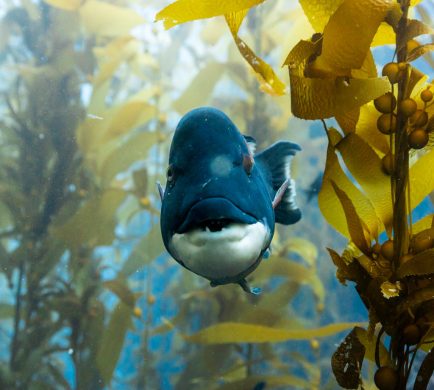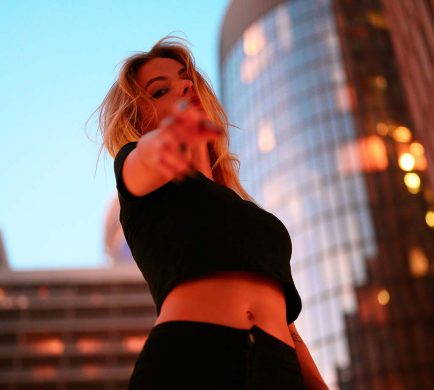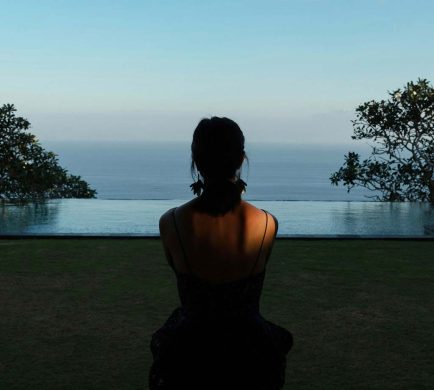Co-founder of Wildstar Film, and Executive Producer of Queens (Queens is produced by Wildstar Film for National Geographic)
Vanessa Berlowitz, the co-founder of Wildstar Films, is a television producer and filmmaker known for overseeing stunning nature documentaries. She has been involved in such projects as Planet Earth, Frozen Planet, and many more, including series that she executive produced in association with Ryan Reynolds and Darren Aronofsky.
One of Berlowitz’s passions is training women to become wildlife filmmakers, and in order to fulfill this drive, she launched Wildstar Academy. The Academy’s mission began with Queens, the first ever nature series told through an all-female lens, and the subject of this article.
Queens, which premiers on Nat Geo on March 4, and streams the same week on Disney+ and Hulu, is a riveting and groundbreaking series that invites viewers into the heart of the animal kingdom, where the true queens of the wild reign. The show explores the often-overlooked role of female leadership in the animal world, offering a fresh and moving perspective of the intricate balance of nature. In Queens, Berlowitz and team offer us the lives of remarkable matriarchs across diverse species, painting an awe-inspiring portrait of strength, resilience, and the interconnectedness of all living beings.

Please share some insights into the choices of female filmmakers from various countries for the series Queens.
When we set out to make Queens, we recognized the importance of showcasing diverse voices, especially those close to the wildlife being documented. We reached out to established female filmmakers, such as Justine Evans and Sophie Darlington, both accomplished directors of photography. Recognizing the scarcity of female representation in this field, we aimed to break the norm. We invited them to become series directors of photography and, in turn, mentors to new and emerging talents from Brazil, Alaska, and Tanzania, among others. This initiative transformed Queens into a living academy, fostering new voices and perspectives in wildlife filmmaking.
How did the impactful four-year journey of making Queens shed light on climate change injustices,
particularly during filming?
Our journey coincided with one of the worst droughts in East Africa in two decades. This environmental crisis halted filming and revealed the devastating consequences of climate change on wildlife, especially elephants. The suspension of filming and the challenges brought by COVID-19 allowed us to witness the extremes in environmental conditions and the urgent need for global awareness and conservation efforts.

Please elaborate on the intentional choice of featuring female leaders and the mentorship program involving seasoned female filmmakers.
Queens aimed to spotlight female talent in the natural world, a perspective often overlooked. We intentionally sought out seasoned female filmmakers like Justine Evans and Sophie Darlington, who, as directors of photography, played pivotal roles. They contributed their expertise and became mentors to a new generation of filmmakers from diverse backgrounds, breaking the industry’s gender barriers. This mentorship initiative has significantly impacted the representation of women in wildlife filmmaking.
How did the series convey the message of wildlife conservation without being preachy, particularly in
episodes like the one featuring bonobos?
Our approach was to deliver the message of wildlife conservation through inspirational and educational storytelling. The episode featuring bonobos in the Congo exemplifies this approach. We conveyed the transformative power of empathy and nurturing leadership by showcasing the dedicated women at the bonobo sanctuary who volunteer to rehabilitate
orphaned bonobos. The series strives to inspire without being didactic, allowing viewers to connect emotionally with the stories presented.
What role does March, International Women’s Month, play in the release of Queens, and how did the project come about?
March, the month celebrating the Day of the Woman, adds a meaningful context to the release of Queens. The project originated from a collaboration with National Geographic and was sparked by a conversation with Janet Han Vissering, a senior figure at National Geographic. I pitched the idea after being inspired by the female leadership observed during my two-and-a-half years of filming elephants for a Disney nature project. The initial idea of a single film evolved into an entire series focusing on diverse female leaders in the natural world.
What role does March, International Women’s Month, play in the release of Queens, and how did the project come about?
Angela Bassett was a deliberate and strategic choice for Queens. We approached her with the first cut of the series, recognizing her iconic presence, versatility, and commitment to female empowerment. The decision went beyond her celebrity status; it aligned with the values of Queens and WildStar Films. Angela’s involvement extends to being an executive producer, where she actively contributes to the series’ mission and acts as an ambassador, amplifying the project’s goals of diverse representation and wildlife conservation.

Queens captures poignant moments, such as the one featuring bonobos and the blind elephant. Please share the significance of these instances in conveying the broader message of the show.
The episode featuring bonobos in the Congo at the bonobo sanctuary is profoundly moving. It introduces viewers to women who, often orphaned by civil war, volunteer to live 24/7 with baby orphaned bonobos. These women undertake the immense responsibility of rehabilitating these orphaned creatures, providing constant comfort and contact, highlighting the deep bond between humans and wildlife. The narrative unfolds as the bonobos are eventually
reintroduced into larger outdoor spaces, showcasing a story of mutual redemption for both the women and the bonobos.
Additionally, the series witnessed a heartbreaking moment involving a blind elephant named Silangay. By playing music, the elephant was given the feeling of safety. Our director, Faith Musembi, the first black woman to produce a premium natural history show, had been following Silangay for the Savanna Queens episode. The filming was suspended due to the drought and COVID-19, and upon returning; the team discovered Silangay had yet to survive the drought. This heartbreaking event underscored the harsh realities of climate change and its devastating impact on wildlife, contributing to the series’ narrative of urgent conservation and the need to protect these magnificent creatures.
As we end our conversation, the overarching message is clear: the animal world’s female leaders can serve as powerful examples for humans striving to lead better. Berlowitz expressed how witnessing the animals’ ability to adapt, collaborate, and find solutions to challenges offers a positive and calming perspective. This coexistence among various species in the natural world underscores the importance of unity, optimism, and a shared drive for survival – values that can undoubtedly inspire and shape effective human leadership.
Queens invites viewers to reconsider preconceived notions about leadership and draw inspiration from the matriarchs in the animal kingdom. By embracing the adaptability, collaboration, and empathy observed in these natural leaders, humans can cultivate more compassionate, inclusive, and effective leadership in their own endeavors and understand and appreciate the essence of the female in all societies, animal and human alike.
Queens premieres on March 4th. Don’t miss this emotional and visual spectacle.
by Alexia Melocchi
Photos courtesy of National Geographic







